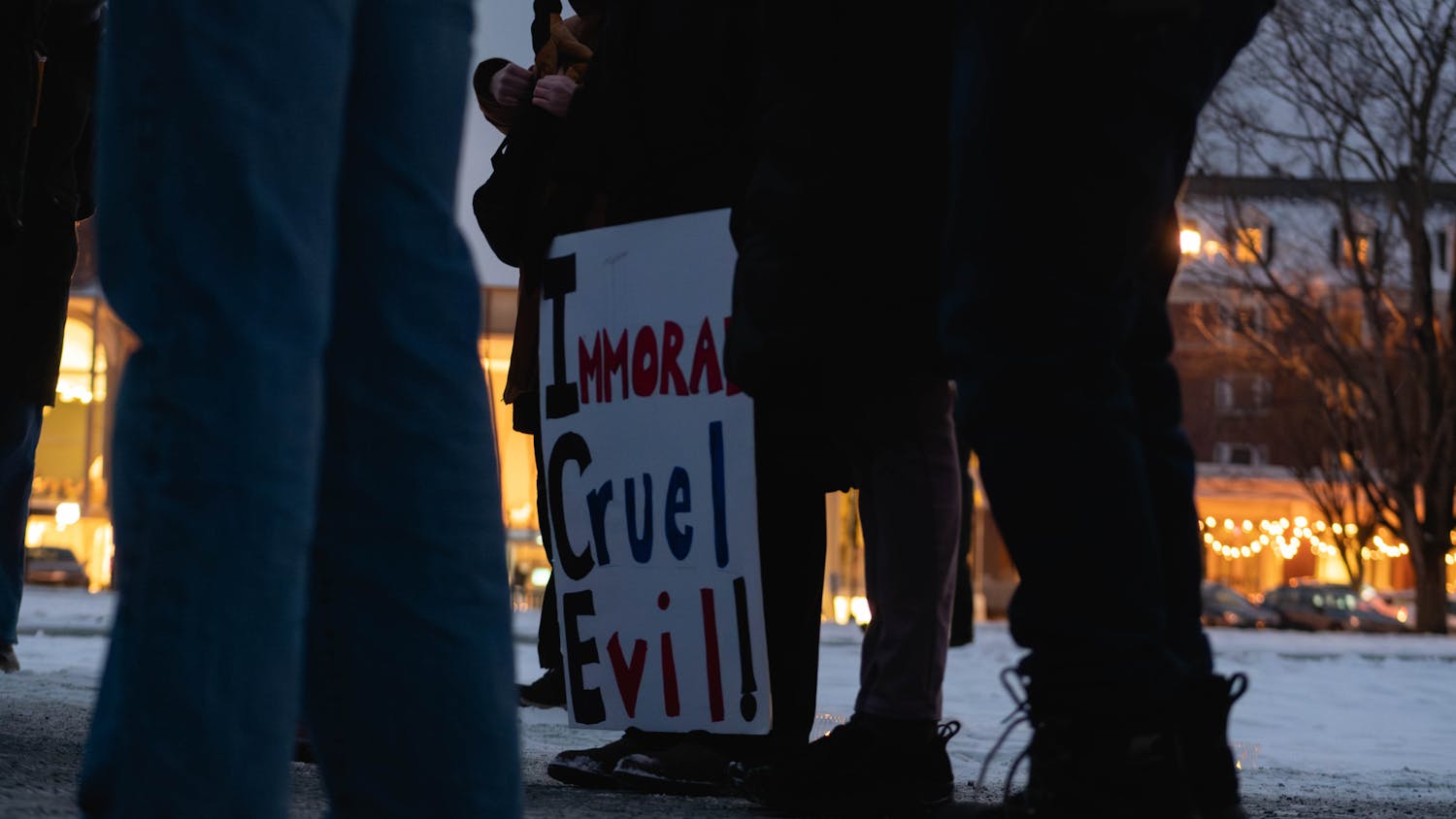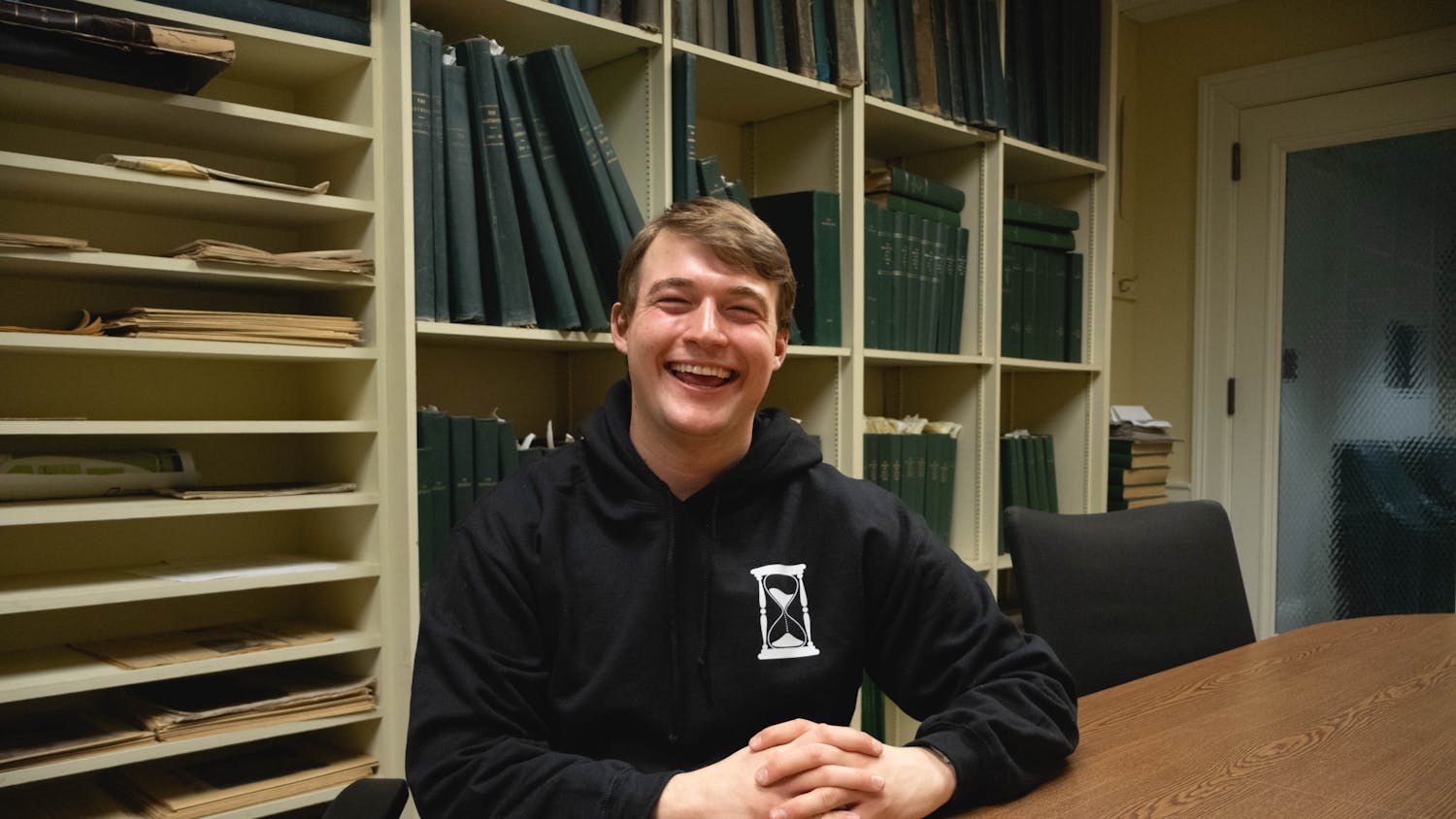Millions of Americans have watched as special counsel Robert Mueller’s investigation of Russian electoral interference divulges information about foreign involvement in the 2016 election. Greg Miller,
On Oct. 25, Miller visited Dartmouth to talk about his new book, “The Apprentice: Trump, Russia, and the Subversion of American Democracy.” Nearly 125 students, faculty and community members attended the event, which was sponsored by the Rockefeller Center for Public Policy and the Dickey Center for International Understanding.
Miller’s book, released on Oct. 2, has received extremely positive reviews, according to Daniel Benjamin, director of the Dickey Center and head coordinator of the event. The book investigates the Kremlin’s attempts to bolster Trump’s campaign and sabotage Hillary Clinton’s reputation. Miller also covers Mueller’s widely-publicized probe into the Russians, Trump
Many people see Russia’s meddling in the election as the greatest violation of popular sovereignty in American history, Benjamin said in an interview with The Dartmouth.
“The enormity of Russia’s interference in the 2016 election almost two years later still defies description,” he said when he introduced Miller at the talk. “We have had close and bitterly contested elections before, but we have never had an election in which an outside actor had a profound and perhaps decisive effect on the outcome.”
However, many Americans are unconvinced Russians meddled in the election, according to a recent Ipsos poll. The sharp divide in opinion closely aligns with party affiliation, with 54 percent of Republicans disagreeing and 85 percent of Democrats agreeing. According to a new Washington Post poll, people are even more divided on whether Mueller has uncovered sufficient evidence to suggest the Trump campaign colluded with Russians. Miller discussed the difficulty of assessing divisive issues with objectivity. He said his book aims not to convince readers of Trump’s guilt but rather to present unbiased information.
“I want to provide people a fuller understanding of how Russia’s interference, Trump’s election and the dysfunction of our country are all connected,” he said in an interview with The Dartmouth. “I hope [my readers] come away with an appreciation for what an important period this is for us in our country, our society and our way of life.”
Miller said during the interview that the climate in Washington D.C. fuels accusations of “fake news” and disorients Americans. He added that the institution of the press as a whole is in jeopardy.
“Here in the United States, I really worry about rising resentment of the press and the hostility toward our longstanding role in society,” he said. “The Founders vested the press with certain freedoms … in the very First Amendment, and they’re really in peril right now.”
Miller noted that there is a downward trend in global press freedoms.
Vanessa Smiley ’21 said she attended the event to hear Miller speak on the relationship between politics and the media. Smiley added that she believes it is crucial for people, and especially Dartmouth students, to engage with these issues.
“It forces you to consider multiple viewpoints and to consider viewpoints that contradict your core beliefs,” she said. “It’s really important to always interrogate your beliefs and confront issues head-on.”
Robert Williams ’21 said he wished more students took advantage of the opportunities offered by the Dickey Center.
“A lot of these issues transcend subjects, so no matter what subject you study, you can find something relevant,” Williams said.
Faculty brought a different perspective to the talk, viewing their students as key players in solving these political issues.
“One of the reasons I’m happy to be a professor is that I think hyper-partisanship hasn’t crept into university classrooms, even if it sometimes inflicts us outside of the classroom,” government professor Benjamin Valentino said. “If there is some hope that we’ll recover from the hyper-partisanship that we see now, it’s education that will get us to focus on science and facts rather than opinion. The mission of any university is to struggle for truth and to recognize it’s not always obvious what the right answer is.”
Miller emphasized the importance of young people involving themselves in politics and working to bridge gaps between partisan identities.
“I do think that [young people] are going to encounter real challenges moving forward and they’re going to have to figure out ways to help the rest of us solve these issues,” he said.
However, Miller said he is assured students across the nation will resolve domestic crises despite potential setbacks.
“I’m super impressed by the level of political involvement, activity
Smiley is a member of The Dartmouth Staff.



